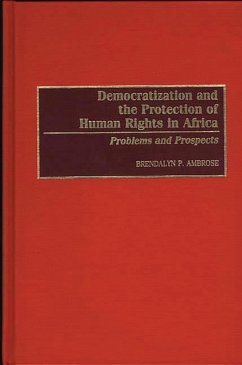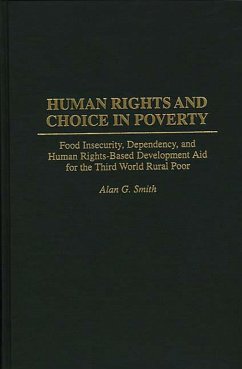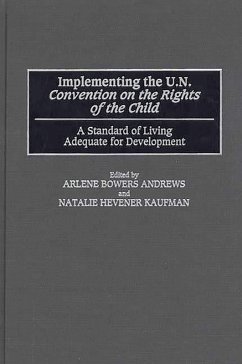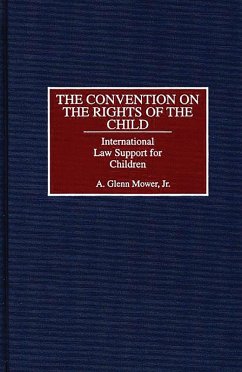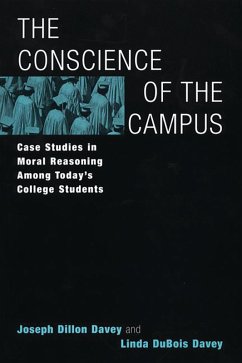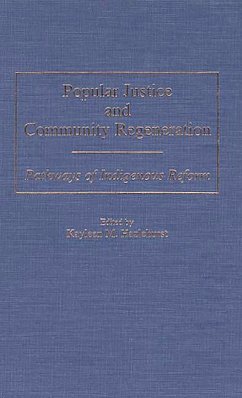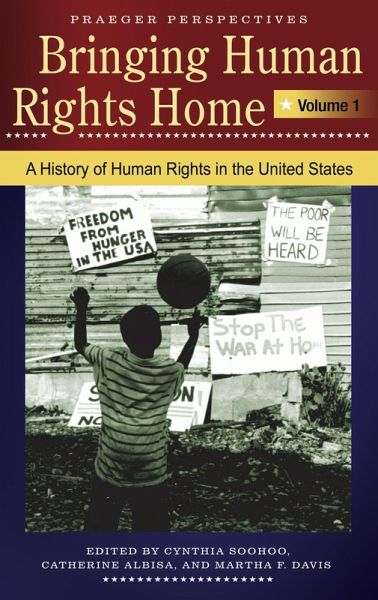
Bringing Human Rights Home (eBook, PDF)
[3 volumes]
Redaktion: Albisa, Catherine; Soohoo, Cynthia; Davis, Martha F.

PAYBACK Punkte
51 °P sammeln!
This three-volume set chronicles the history of human rights in the United States from the perspective of domestic social justice activism. First, the set examines the political forces and historic events that resulted in the U.S.'s failure to embrace human rights principles at home while actively (albeit selectively) championing and promoting human rights abroad. It then considers the current explosion of human rights activism around issues within the United States and the way human rights is transforming domestic social justice work. The first volume provides a historical perspective on the ...
This three-volume set chronicles the history of human rights in the United States from the perspective of domestic social justice activism. First, the set examines the political forces and historic events that resulted in the U.S.'s failure to embrace human rights principles at home while actively (albeit selectively) championing and promoting human rights abroad. It then considers the current explosion of human rights activism around issues within the United States and the way human rights is transforming domestic social justice work. The first volume provides a historical perspective on the United States' ambivalent relationship with the international human rights movement. It examines the implications of recognizing domestic rights violations as a matter of international concern and the relationship between international and domestic law. It also addresses the role the Cold War and Southern opposition to international scrutiny of its Jim Crow policies and segregation played in shaping U.S. attitudes toward human rights generally and social and economic rights in particular. These factors forced social justice organizations to largely abandon employing a human rights framework in their domestic work and had a lasting impact on U.S. perspectives about fundamental rights and the role of government. The set also chronicles current domestic human rights work. Volumes two and three consider why domestic activists currently are using human rights and the tactical advantages and practical challenges posed by such strategies. These volumes cover everything from globalization to terrorism and the erosion of civil rights protections that led to a renewed interest in human rights; human rights versus civil rights strategies; and the different ways human rights can support social activism.




